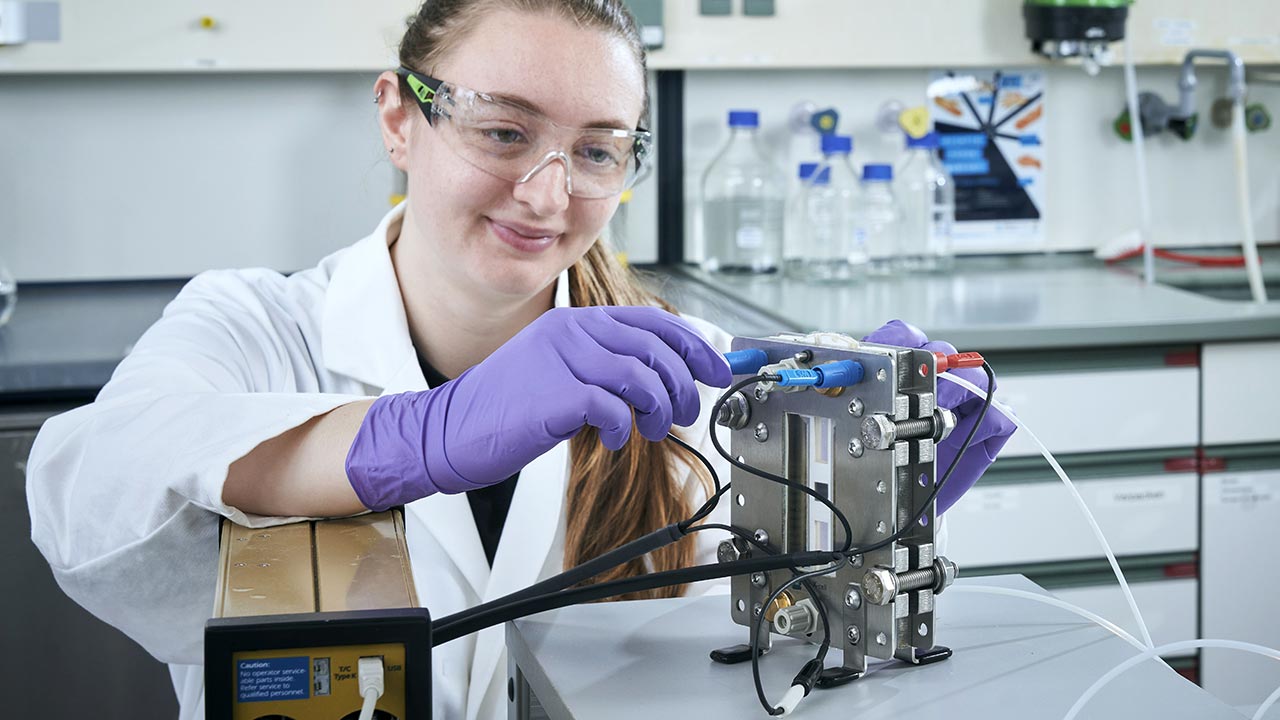Electrolysis for CO2-neutral chemical processes
The ETOS future cluster aims to enable the production of numerous fine chemicals without fossil raw materials.

Chemistry without hazardous waste and greenhouse gases - that is the goal of the future cluster "Electrification of Technical Organic Syntheses" (ETOS). Modern life would be completely unimaginable without chemical products, and some synthesis processes simply do not work without environmentally harmful starting materials, high energy input and expensive catalysts. The potential of organic electrosynthetic processes, on the other hand, promises more sustainable and less expensive alternatives. ETOS aims to leverage this potential. This form of synthesis uses electric current to convert organic compounds into the desired chemical products.
Ecologically and economically rewarding
"Organic electrosynthesis is still a little-researched niche technology that is rarely used in industry. We now want to use it to develop customized processes for specific production processes that are ecologically and economically worthwhile," explains Ulrike Krewer, an electrochemist at the Karlsruhe Institute of Technology (KIT) and co-speaker of ETOS. "If we then also rely on electricity from renewable energies, the new processes are an important step toward CO2 neutrality in these processes." Those involved in the project not only want to develop such processes in the laboratory, but also to push ahead with upscaling in order to further develop these processes in a way that is suitable for industrial use.
Save energy and resources
Philipp Röse from KIT describes the motivation for the project: "The advantage is that no waste is produced when a reaction is triggered with the help of electricity. It is a 'clean' process, allows mild synthesis conditions, and is inherently safe." The researchers hope to find processes for different syntheses of fine chemicals that save energy and resources. "This involves improving individual components, such as electrodes, as well as entire demonstrators through to the complete process chain in large-scale plants," explains Röse.
15 million euros in funding
ETOS is one of seven clusters from the "Cluster4Future" competition funded by the German Federal Ministry of Education and Research. For the first funding period from 2023 to 2025, ETOS will receive funding of around 15 million euros. Industry will contribute an additional approximately 5 million euros. Subsequently, such funding can be applied for twice more, each time for a further three years, so that ETOS could receive funding of up to 45 million euros for a total of more than nine years. In addition to the project-leading University of Mainz and KIT, the TU Kaiserslautern, the TU Darmstadt, the Fraunhofer Institute for Microtechnology and Microsystems, and 15 industrial partners, including BASF, Boehringer Ingelheim, Merck, Bayer, and Evonik, are involved.
bl


